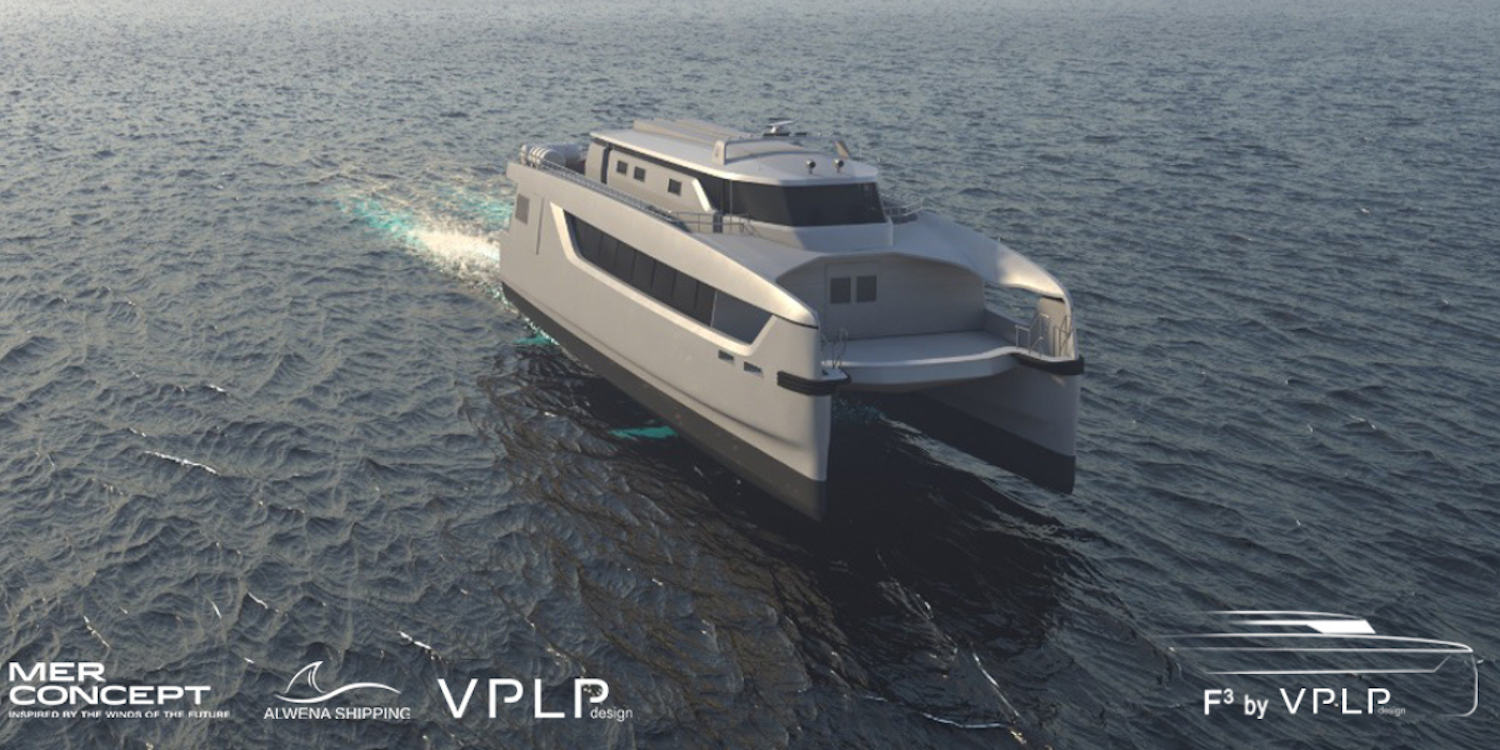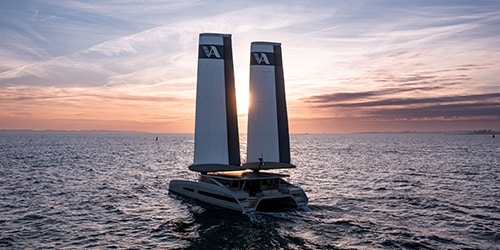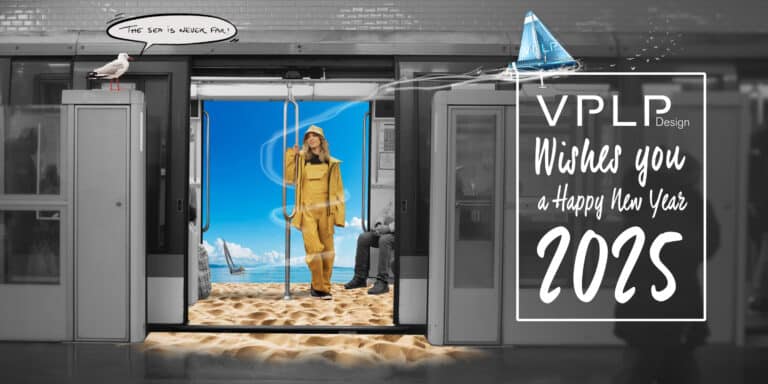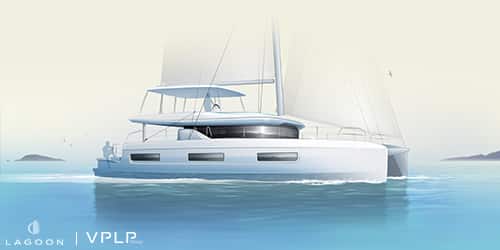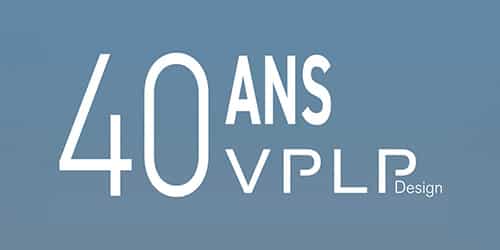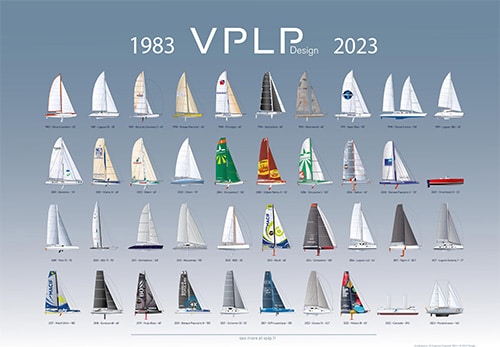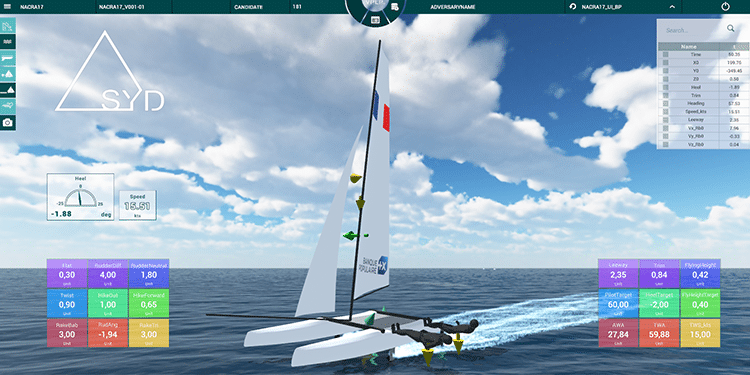The public-benefit company founded by François Gabart joins forces with VPLP Design and Alwena Shipping to develop a fast and economic passenger vessel. The F3 is aimed at addressing urban mobility.
Unveiled in early 2020 by VPLP Design in partnership with Alwena Shipping, the Fast Foiling Ferry (F3, pronounced “F cubed”) is a 30 m foiling catamaran capable of carrying 200 passengers at an average speed of 40 knots, burning 40% less fuel than a similarly sized displacement vessel. It’s an innovative ship concept which lays the groundwork for achieving energy transition in the sea transportation sector.
Fixed metal foils
“In recent years we’ve designed a large number of foiling boats, in particular for offshore racing, and it seemed to us absolutely relevant to apply this technology to passenger vessels with the aim of decarbonizing the sector,” says VPLP chairman Simon Watin. “Unlike sailing boats designed for performance, the foils in this instance are made of metal and fixed permanently in position for greater robustness. But as with the IMOCAs and the Ultims, their purpose is to lift the boat out of the water, thus considerably reducing fuel consumption.”
It’s with this aim in mind that the duo at the origin of the project became a trio by bringing on board MerConcept. All three companies share the same ambition to contribute to the energy transition of merchant shipping by reducing its carbon footprint through the use of renewable energies and low-carbon technologies. VPLP Design is in charge of the general naval architecture and the hydrodynamics of the foils. Alwena Shipping, a company specializing in maritime project management, is developing systems relating to propulsion and motorization. While MerConcept will be focusing on life-cycle analysis and the design of electronic and mechanical controls for the foils.
Refocusing the project on urban mobility
With only a few days to go before the start of the Transat Jacques-Vabre, which will see François Gabart joining Tom Laperche at the helm of SVR Lazartigue (the Ultim trimaran designed by VPLP and assembled by MerConcept), the addition of Gabart’s Concarneau-based company to the project is a real plus for the stakeholders. “After Skycity, the 12 m foiling taxi project developed in collaboration with MerConcept, it seemed natural for us to continue the adventure with this team that we know so well, but on a much larger scale. It will allow us to inject some new blood and exploit the experience acquired by MerConcept in the world of hydrofoils, most notably two Ultims, two IMOCAs (Apivia and the future V and B-Monbana-Mayenne) but also other projects outside racing,” says Simon Watin. “We are certainly going to make progress in terms of research and development.”
“By using decarbonized energies, the F3 could be produced in different versions depending on the local market, the availability of said energies, and local policies. We have some encouraging avenues for development for this boat and MerConcept is ideally placed to strengthen the team,” says Alwena Shipping chairman Ludovic Gerard.
The prospects for this market linked to soft mobility are, according to VPLP’s chairman, particularly interesting: “Burning less fuel while maintaining a similar speed is a goal that many stakeholders share, in particular in densely populated cities on the coast.” Consequently the trio comprising VPLP Design, Alwena Shipping and MerConcept hope to refocus the project and its prospects for development on to urban mobility. Their objective is to bring investors on board as early as next year. The concept is scheduled for presentation in several trade shows in the spring. “Once investors have shown their interest, we can adapt the F3 to their needs and accelerate its development.”
